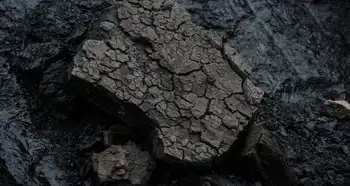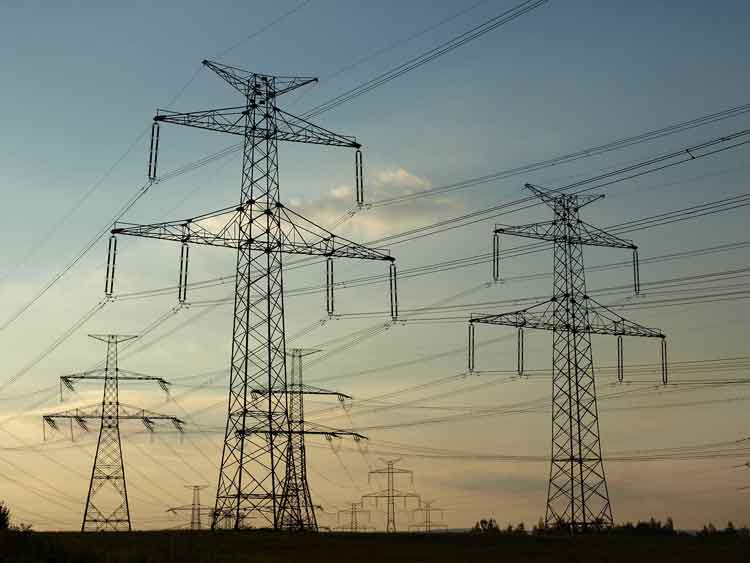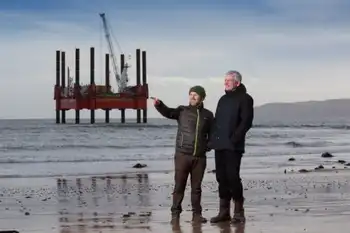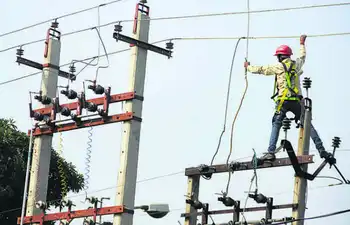Smart Street Lighting NY delivers Syracuse-wide LED retrofits with smart controls, Wi-Fi, and sensors, saving $3.3 million annually and cutting nearly 8,500 tons of greenhouse gases, improving energy efficiency, safety, and maintenance.
Key Points
A NYPA-backed program replacing streetlights with LED and controls to cut costs and emissions across New York by 2025.
✅ Syracuse replaced 17,500 fixtures with LED and smart controls.
✅ Saves $3.3M yearly; cuts 8,500 tons CO2e; improves safety.
✅ NYPA financing and maintenance support enable Smart City sensors.
Governor Andrew M. Cuomo today announced the completed installation of energy-efficient LED streetlights throughout the City of Syracuse as part of the Governor's Smart Street Lighting NY program. Syracuse, through a partnership with the New York Power Authority, replaced all of its streetlights with the most comprehensive set of innovative Smart City technologies in the state, saving the city $3.3 million annually and reducing greenhouse gas emissions by nearly 8,500 tons a year--the equivalent of taking more than 1,660 cars off the road. New York has now replaced more than 100,000 of its streetlights with LED fixtures, reflecting broader state renewable ambitions across the country, a significant milestone in the Governor's goal to replace at least 500,000 streetlights with LED technology by 2025 under Smart Street Lighting NY.
Today's announcement directly supports the goals of the Climate Leadership and Community Protection Act, the most aggressive climate change law in the nation, through the increased use of energy efficiency, exemplified by Seattle City Light's program that helps customers reduce bills, to annually reduce electricity demand by three percent--equivalent to 1.8 million New York households--by 2025.
"As we move further into the 21st century, it's critical we make the investments necessary for building smarter, more sustainable communities and that's exactly what we are doing in Syracuse," Governor Cuomo said. "Not only is the Smart Street Lighting NY program reducing the city's carbon footprint, but millions of taxpayer dollars will be saved thanks to a reduction in utility costs. Climate change is not going away and it is these types of smart, forward-thinking programs which will help communities build towards the future."
The more than $16 million cutting-edge initiative, implemented by NYPA, includes the replacement of approximately 17,500 streetlights throughout the city with SMART, LED fixtures, improving lighting quality and neighborhood safety while saving energy and maintenance costs. The city's streetlights are now outfitted with SMART controls that provide programmed dimming ability, energy metering, fault monitoring, and additional tools for emergency services through on-demand lighting levels.
"The completion of the replacement of LED streetlights in Syracuse is part of our overall efforts to upgrade more than 100,000 streetlights across the state," Lieutenant Governor Kathy Hochul said. "The new lights will save the city $3.3 million annually, helping to reduce cost for energy and maintenance and reducing greenhouse gas emissions. These new light fixtures will also help to improve safety and provide additional tools for emergency services. The conversion of streetlights statewide to high-tech LED fixtures will help local governments and taxpayers save money, while increasing efficiency and safety as we work to build back better and stronger for the future."
NYPA provided Syracuse with a $500,000 Smart Cities grant for the project. The city utilized the additional funding to support special features on the streetlights that demonstrate the latest in Smart City technologies, focused on digital connectivity, environmental monitoring and public safety. These features are expected to be fully implemented in early 2021.
Connectivity: The city is planning to deploy exterior Wi-Fi at community centers and public spaces, including in neighborhoods in need of expanded digital network services.
Environmental Monitoring: Ice and snow detection systems that assist city officials in pinpointing streets covered in ice or snow and require attention to prevent accidents and improve safety. The sensors provide data that can tell the city where salt trucks and plows are most needed instead of directing trucks to drive pre-determined routes. Flood reporting and monitoring systems will also be installed.
Public Safety and Property Protection: Illegal dumping and vandalism detection sensors will be installed at strategic locations to help mitigate these disturbances. Vacant house monitoring will also be deployed by the city. The system can monitor for potential fires, detect motion and provide temperature and humidity readings of vacant homes. Trash bin sensors will be installed at various locations throughout the city that will detect when a trash bin is full and alert local officials for pick-up.
NYPA President and CEO Gil C. Quiniones said, "Syracuse is truly a pioneer in its exploration of using SMART technologies to improve public services and the Power Authority was thrilled to partner with the city on this innovative initiative. Helping our customers bring their streetlights into the future further advances NYPA's reputation as a first-mover in the energy-sector."
New York State Public Service Commission Chair John B. Rhodes said, "Governor Cuomo signed legislation making it easier for municipalities to purchase and upgrade their street lighting systems. With smart projects like these, cities such as Syracuse can install state-of-the-art, energy efficient lights and take control over their energy use, lower costs to taxpayers and protect the environment."
Mayor Ben Walsh said, "Governor Cuomo and the New York Power Authority have helped power Syracuse to the front of the pack of cities in the U.S., leveraging SMART LED lighting to save money and make life better for our residents. Because of our progress, even in the midst of a global pandemic, the Syracuse Surge, our strategy for inclusive growth in the New Economy, continues to move forward. Syracuse and all of New York State are well positioned to lead the nation and the world because of NYPA's support and the Governor's leadership."
To date, NYPA has installed more than 50,000 LED streetlights statewide, with more than 115,000 lighting replacements currently implemented. Some of the cities and towns that have already converted to LED lights, in collaboration with NYPA, include Albany, Rochester, and White Plains. In addition, the Public Service Commission, whose ongoing retail energy markets review informs consumer protections, in conjunction with investor-owned utilities around the state, has facilitated the installation of more than 50,000 additional LED lights.
The NYPA Board of Trustees, in support of the Smart Street Lighting NY program, authorized at its September meeting the expenditure of $150 million over the next five years to secure the services of Candela Systems in Hawthorne, D&M Contracting in Elmsford and E-J Electric T&D in Wallingford, Connecticut, while in other regions, city officials take a clean energy message to Georgia Power and the PSC to spur utility action. All three firms will work on behalf of NYPA to continue to implement LED lighting replacements throughout New York State to meet the Governor's goal of 500,000 LED streetlights installed by 2025.
Smart Street Lighting NY: Energy Efficient and Economically Advantageous
NYPA is working with cities, towns, villages and counties throughout New York to fully manage and implement a customer's transition to LED streetlight technology. NYPA provides upfront financing for the project, and during emergencies, New York's utility disconnection moratorium helps protect customers while payments to NYPA are made in the years following from the cost-savings created by the reduced energy use of the LED streetlights, which are 50 to 65 percent more efficient than alternative street lighting options.
Through this statewide street lighting program, NYPA's government customers are provided a wide-array of lighting options to help meet their individual needs, including specifications on the lights to incorporate SMART technology, which can be used for dozens of other functions, such as cameras and other safety features, weather sensors, Wi-Fi and energy meters.
To further advance the Governor's effort to replace existing New York street lighting, in 2019, NYPA launched a new maintenance service to provide routine and on-call maintenance services for LED street lighting fixtures installed by NYPA throughout the state, and during the COVID-19 response, New York and New Jersey suspended utility shut-offs to protect customers and maintain essential services. The new service is available to municipalities that have engaged NYPA to implement a LED street lighting conversion and have elected to install an asset management controls system on their street lighting system, reducing the number of failures and repairs needed after installation is complete.
To learn more about the Smart Street Lighting NY program, visit the program webpage on NYPA's website.
New York State's Nation-Leading Climate Plan
Governor Cuomo's nation-leading climate plan is the most aggressive climate and clean energy initiative in the nation, calling for an orderly and just transition to clean energy that creates jobs and continues fostering a green economy as New York State builds back better as it recovers from the COVID-19 pandemic. Enshrined into law through the CLCPA, New York is on a path to reach its mandated goals of economy wide carbon neutrality and achieving a zero-carbon emissions electricity sector by 2040, similar to Ontario's clean electricity regulations that advance decarbonization, faster than any other state. It builds on New York's unprecedented ramp-up of clean energy including a $3.9 billion investment in 67 large-scale renewable projects across the state, the creation of more than 150,000 jobs in New York's clean energy sector, a commitment to develop over 9,000 megawatts of offshore wind by 2035, and 1,800 percent growth in the distributed solar sector since 2011. New York's Climate Action Council is working on a scoping plan to build on this progress and reduce greenhouse gas emissions by 85 percent from 1990 levels by 2050, while ensuring that at least 40 percent of the benefits of clean energy investments benefit disadvantaged communities, and advancing progress towards the state's 2025 energy efficiency target of reducing on-site energy consumption by 185 TBtus.
Related News












